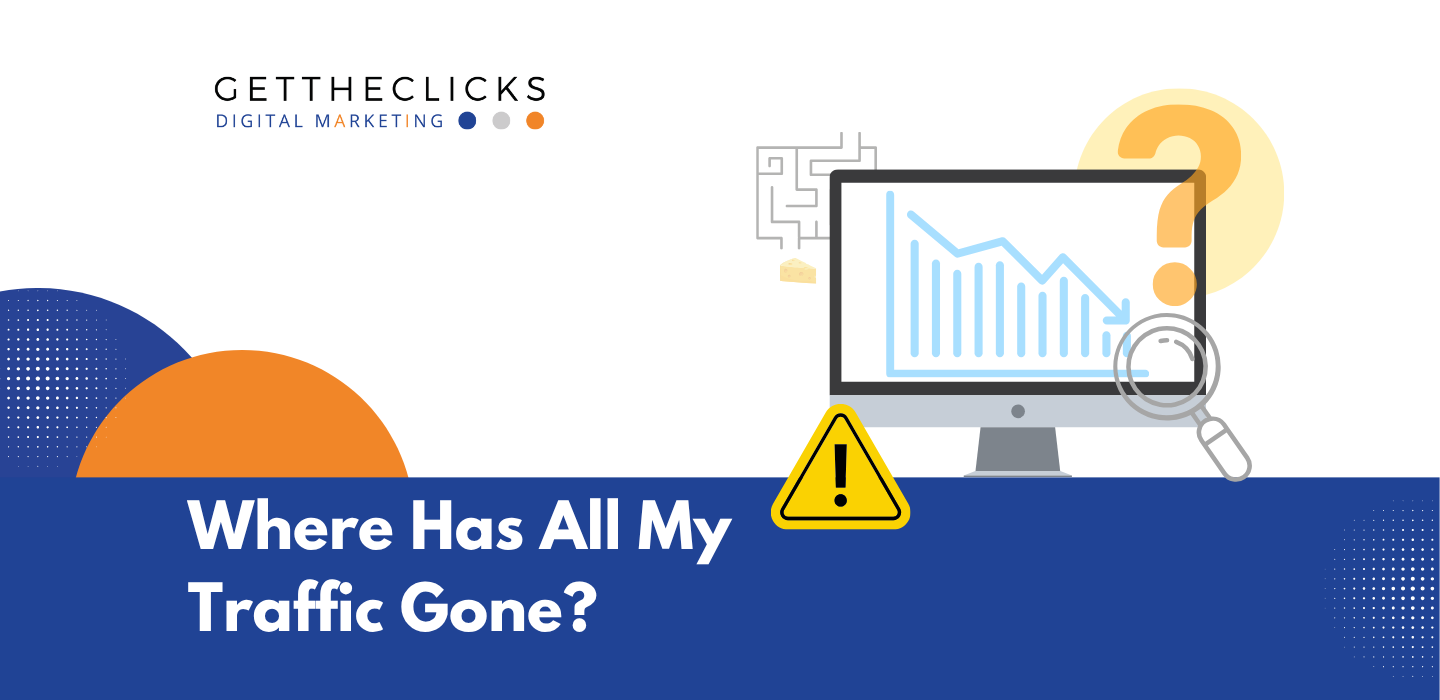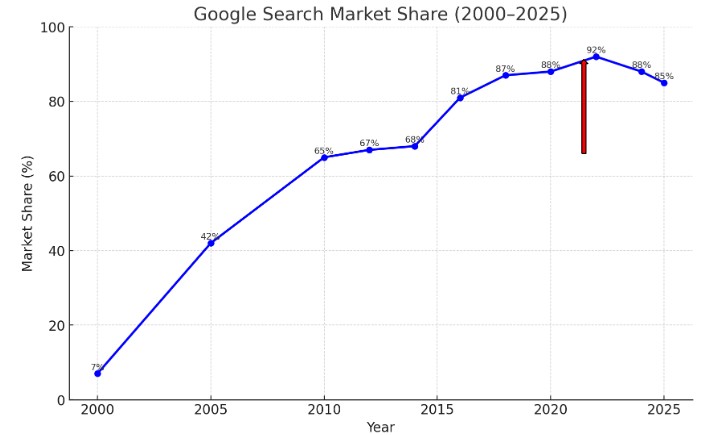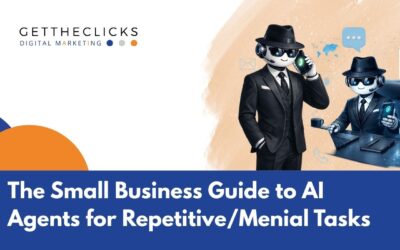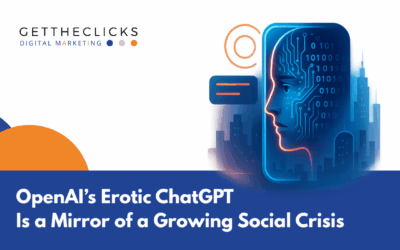TL;DR
- Google’s AI features (AI Overviews and AI Mode) answer more queries directly on the SERP, so fewer users click through to websites.
- Rankings can look “fine,” but CTR drops—expect stable impressions with declining organic sessions.
- The hit is biggest on broad informational queries and SERPs packed with snippets, PAAs, and shopping units.
- Measure it: segment pages where AIO appears, compare CTR vs. non-AIO SERPs, and watch branded vs. non-branded trends.
- Win back clicks by targeting questions AI can’t fully resolve: unique data, tools/calculators, step-by-step guidance, and strong POV.
- Optimize to be cited or surfaced by AIO: tight Q&A sections, schemas (FAQ/HowTo/Product/Organization/Breadcrumb), clear headings, and E-E-A-T signals.
- Rebalance content toward bottom-funnel/search-with-intent pages (comparisons, alternatives, pricing, “near me,” and niche long-tails).
- Diversify beyond classic SEO: newsletter, partnerships, social/video, and PR; keep a close eye on GSC CTR, query mix, and SERP feature presence.
Organic Website Traffic Down?
If your Google traffic has fallen off a cliff lately, you’re not alone. Since the rollout of AI Overviews (and AI Mode experiments), more answers are appearing directly on the results page, meaning fewer clicks through to actual websites. It’s not just you; Google results pages have changed, and the click-through math has changed with it. In this post, I’ll break down what’s really happening to your organic traffic, how AI features siphon clicks, and the specific patterns to look for in your data. Most importantly, I’ll show you practical fixes—from intent-focused content and snippet optimization to schema and content formats that still earn the click.
Do you remember the book Who Moved My Cheese by Spencer Johnson? If you don’t, here is a quick summary. It is a motivational fable about dealing with change in work and life. It tells the story of four characters: two mice, Sniff and Scurry, and two “little people,” Hem and Haw, who live in a maze and rely on cheese, a metaphor for success or happiness. When their cheese disappears, the mice quickly adapt and search for new cheese, while Hem and Haw resist change out of fear. Haw eventually overcomes his hesitation, learning to embrace change, take proactive steps, and visualize success. The story highlights that change is inevitable, fear can hold us back, and adaptability, perseverance, and a willingness to explore new opportunities are essential for personal growth and professional success.
Well, whether you like it or not your cheese is being moved right now. For years, really decades, many of us have gotten used to the fact that Google was the only place to go to find our cheese. Customers, and businesses looking to serve those customers, would converge on a single platform to find each other. These times are changing. While some of us may have never imagined a world in which more platforms for customer acquisition would exist, it is even less imaginable that the main platform that has been providing these customers would shrink considerably in a short amount of time.
The Birth of AI
The fact is, we are currently undergoing a fundamental shift in the way people are using technology. I will go as far as saying that this is a seismic shift of large proportions that I have not seen in this industry since I started my career 23 years ago. So here is a little background into all of this:
Google has actually tinkered with AI for many years going all the way back to 2001 when it implemented spelling corrections for some of its search queries. In 2006 when Google Translate launched, it used machine learning for the first time to automatically translate between languages. Over the next decade Google made various acquisitions in the AI research space. In 2015 it rolled out RankBrain which was the first main step in Google actually being able to interpret the intent behind a user’s search. 4 years later, in 2019, BERT (Biodirectional encoder representations from Transformers) was rolled out which improved Google’s understanding of natural language processing. Of course during that time other companies were also working to improve their AI capabilities, including Microsoft and Facebook, to name a few. Given its predominant search monopoly however, many people automatically assumed that Google would lead the AI charge into the next century. No one really anticipated, including Google itself, that a disruptive technology would be born that frankly caught Google by surprise.
OpenAI and ChatGPT
In 2015 several individuals including Sam Altman and Elon Musk founded a company called OpenAI. The company was designed to be a research organization dedicated to developing artificial intelligence safely and for the benefit of humankind. Its early goals were to advance these AI capabilities while ensuring transparency and ethics. ChatGPT emerged from this research as part of OpenAI’s Generative Pre-trained Transformer series which applied deep learning and transformer architectures to generate coherent text. The first version of ChatGPT launched on November 30, 2022. Below is a graph showcasing the growth of its user base.

Google = Pants Down
Nothing says “we’re on top of things” like hastily rebranding a half-baked AI project after your competitors have already set the bar. In December 2023, Google unveiled Gemini, a multimodal large language model (LLM) designed to rival OpenAI’s ChatGPT 1.0. This move came after ChatGPT’s meteoric rise in popularity, which had Google executives scrambling to play catch-up. The Gemini brand emerged from the ashes of Bard, Google’s initial attempt at conversational AI, which had been launched in March 2023 but failed to make a significant impact. Gemini was presented as a sophisticated AI capable of understanding and generating text, images, and code, aiming to integrate seamlessly into Google’s ecosystem. Despite its ambitious features, Gemini’s launch was perceived by many as a reactive measure rather than a proactive innovation, highlighting Google’s struggle to maintain its dominance in the rapidly evolving AI landscape.
The Others
Since then, multiple other AIs have graced us with their presence. Many of them launched with great fanfare yet ultimately produced nothing more than a loud thud. Some additional noteworthy mentions are Perplexity, Copilot, and Apple Intelligence. You also have Grok & Claude being developed by Xai and Amazon respectively. I have another article in which I discuss these in further detail.
Google’s AI Is Getting Baked Into Its Search
AI Overviews
Then we have Google’s AI Overviews. Google’s AI Overviews are generative-AI summaries that show up at the top of certain Google Search results, offering a concise snapshot of the topic or query along with links to explore more. They’re designed to help users get the gist of complex subjects quickly. These overviews are drawn from multiple sources and use techniques like “query fan-out” (providing sub topics) to gather supporting information.

We wrote a separate article all about AI Overviews recently. We recommend you read up on it as it provides great actionable information on how you can get included. That being said, searches that deliver AI Overviews rob websites ranked under them of valuable traffic. On average a website loses 21% of traffic when an Overview pops up, but some accounts have calculated the traffic loss as high as 39%.
AI Mode
In June of 2025 Google rolled out AI Mode to all users in the United States.
It is powered by a customized version of Google’s Gemini model and is built to handle more complex, multi-part queries with reasoning, multimodal inputs (text, voice, images), and conversational follow-ups. Its goal is to go beyond static summaries (AI Overviews) by acting more like an interactive assistant that helps users dig deeper or compare options, with links to sources for further exploration.
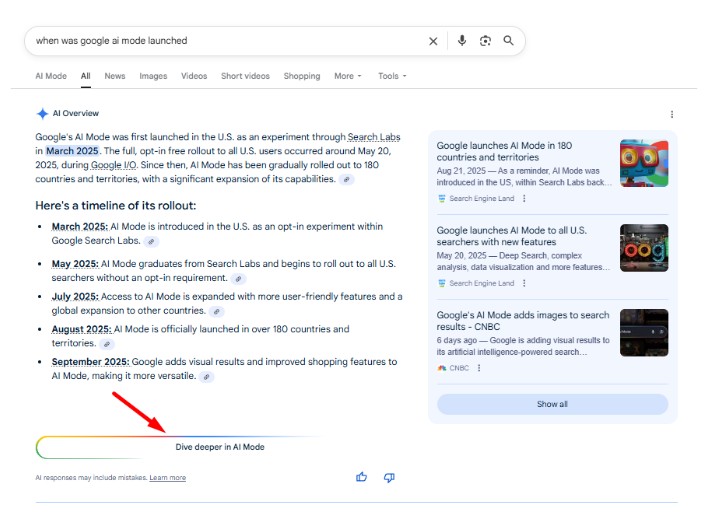
Once you select this option, you essentially leave the Google search engine all together and move into the world of Gemini. By selecting AI Mode for the same search shown above, you now get this:
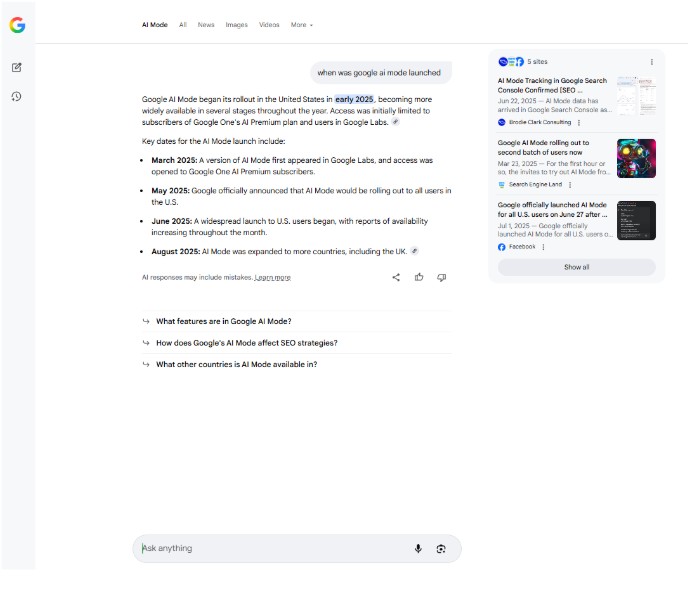
From here you can utilize Gemini much as an assistant to do the searching for you.
The Other Browsers
While the other browsers don’t reap much of the remaining market share, it is interesting to note that all of them are growing. In the last two years:
- Bing’s market share has increased by roughly 2% to 7.5%
- DuckDuckGo’s market share has increased to 2.1%
- Brave’s market share is barely 0.5% but compared to its current user base it is actually the fastest growing browser of the three.
So Why Am I Telling You This?
You have multiple forces siphoning traffic away from standard search (SEO & Google Ads). AI is obviously the largest culprit, but it’s all adding up.
If you’re not going to adapt to these forces your company will join the ranks of BlackBerry. You need to embrace the fact that the days of doing just SEO and Ads are over, otherwise your business will see a dramatic reduction in customers over the next few years. I will go as far as saying that I believe AI-based search results will surpass regular SEO results within the next 3 years.
A Fun Fact To Drive This Message Home
- Google’s US market dominance peaked in February 2023 at 93.37%.
- As of October 2025, its US market share has dropped to 85.67%
Take a look at the following graph. The red arrow signifies the launch of ChatGPT 1.0.
A Double-Whammy For You
Couple this drop in market share with the launch of AI Overviews, which reduce the total number of searches resulting in website clicks on average by 21%, and you have yourself two back to back doozies that are affecting the overall amount of business you can get from Google.
A Hypothetical Scenario
Let’s assume for a second the traffic drop on your website is linear with the market share of Google. That means off the top, your search traffic since 2023 has reduced by roughly 7%. Now let’s assume that 1/3 of your overall traffic to your website is currently generating AI Overviews And that traffic is reduced by 21%.
Now let’s hypothetically assume your website gets one thousand visitors every month. What does this mean for your overall traffic? Here’s the math:

So all things being equal in your marketing, the total average drop in visitors in this website example is 139 visitors / month or 13.9%. That’s tame in comparison to what some other analyses are reporting.
Real World Analyses From Other Reputable Sources
In two studies cited by Search Engine Journal, click results to websites were dramatically reduced when AIO was present.
One study of 300,000 keywords found that the top-ranking page’s Click-Through Rates dropped by 34.5% when an AI Overview was present.
Another involving 700,000 keywords reported an average Click-Though Rate (CTR) decrease of 15.49%. Notably, when AI Overviews appeared alongside featured snippets, the CTR plummeted by up to 37.04%.
User Behavior Insights
A Pew Research Center study found that users who encountered an AI Overview clicked on a traditional search result link in only 8% of visits. In contrast, those who did not see an AI summary clicked on a search result nearly twice as often, at 15% of visits.
Additionally, users who saw an AI summary were more likely to end their browsing session entirely after visiting a search page with an AI summary (26%) compared to those without one (16%).
The Counter Arguments:
“This is a temporary slow-down and Google will recover.”
I disagree. The last time Google’s market share was this low was in 2015. So it took Google 10 years to achieve what it has just lost in 3. To reference the book Who Moved My Cheese, you can Hem and Haw, or you can accept the facts and make an educated business decision.
“Social Media was going to hurt Google and it didn’t. I’m not worried.”
Okay. Fair argument. I even thought that way back then, but Facebook went live to the public in September of 2006 and, as is evidenced by the graph above, never put a dent in Google’s search business. It just kept growing. Ever since AI has emerged market share has been lost.
“ Google was already maxing out its market share. How much further could it even grow?”
Fair argument but if you look at history you will see that when you have virtually have a monopoly on a given product or service you don’t just suddenly lose 10% of the market share for no apparent reason.
The arguments of the naysayers continue to go on and as with any new product you will have your Innovators, early adopters, early majority, late majority and finally your laggards. It’s called the law of diffusion of innovation.
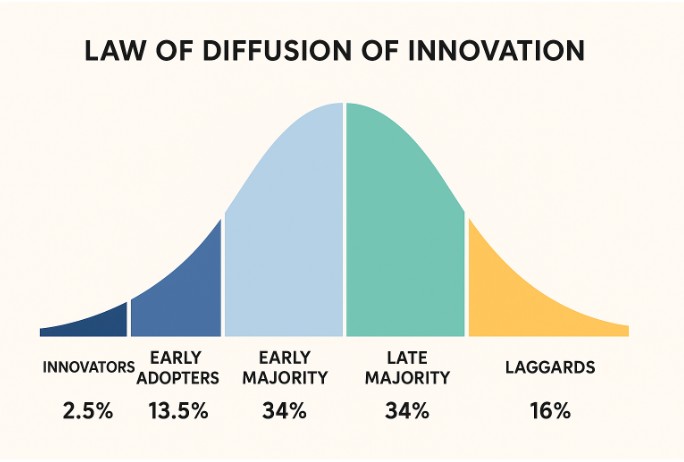
For those who embrace the technology early, they will likely pay a higher price for the early entry but in the long run reap the rewards of riding the wave all the way up while everyone else catches up.
In the end you can call it what you will, to me this is almost a Renaissance; back to the days of the phone book wars. You had a choice, get listed in one book or get listed in two books. Obviously being in two books drove a lot more business.
Moving Forward
Let’s not even worry about the other browsers for now. They have been there for a while. We just need to keep an eye on them.
The Conundrum
On the one hand, traditional Search (SEO, Google Ads, Google Business Profile, etc) itself isn’t going to go anywhere, it’s just not going to have as many people on it looking for products and services. So in the near-term we are going to be experiencing a shrinking marketplace where businesses are going to be fighting more and more for less and less consumers.
On the other hand, AI engines like ChatGPT don’t have that much market share yet and so the potential business you can get from them, even though growing every day, is still relatively low.
To put this into further context:
Google’s 85% market share represents roughly:
- 3.75 billion users / day (US users inconclusive. Google doesn’t provide the exact data)
- 8.5 billion searches / day
ChatGPT’s market share represents roughly:
- 800 million users / day (roughly 330 million in US)
- 2.5 billion prompts / day
Now in all fairness, much of the search in ChatGPT is research and education-based, but the trend is slowly shifting with searches for products and services steadily increasing. Further, Google is certainly not rolling over with its AI Overviews and its AI Mode.
Your Options
So now the ball is in your court. The million dollar question is how you want to handle this from a business perspective. As far as I can see it, you have two simple options:
Door #1- Do Nothing / Wait
- Pro: save the added cost and hassle of getting into something early
- Con: Run the risk of getting in after your competitors have jumped on board.
Door #2 – Add AI Marketing to Your Digital Marketing Lineup
- Pro: Getting a head start of your competition.
- Con: The increased cost of this type of marketing while maintaining your SEO.
Ultimately, we will continue to see more and more AI tools being developed. I have already seen the next versions of AI in search, like Project Mariner by Google. Within the next few years we will be dealing with folks looking for your services by simply asking an AI to find a service for them. People are going to stop searching and AI is going to search for them.
To reference Who Moved My Cheese one more time, you can either be Hem or Haw, or you can be Sniff & Scurry. Either way, your cheese station is done for.

